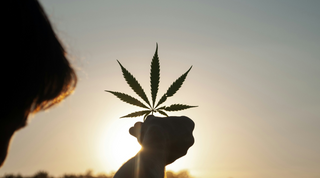
Introduction
“Natural or not—that’s the million-dollar question when it comes to THCa.”
With the hemp industry booming, terms like “synthetic cannabinoids” are flying around—and it’s easy to get confused. Today, we’re tackling a hot topic: Is THCa synthetic?
In this guide, we’ll break down what synthetic really means, whether THCa fits the description, and why understanding the difference can change how you shop for wellness products.
Grab your green smoothie and let’s clear up the confusion, once and for all.

What Is THCa?
Tetrahydrocannabinolic acid—aka THCa—is the non-psychoactive precursor to THC. You’ll find it naturally occurring in raw cannabis and hemp plants, especially in freshly harvested flowers.
Unlike THC, THCa doesn’t produce a “high” unless it’s exposed to heat through a process called decarboxylation. That’s why raw cannabis juicing or cold-extracted tinctures keep THCa in its original form.
It’s chemically distinct from both THC and CBD, offering its own unique benefits—from anti-inflammatory properties to neuroprotective potential. TL;DR? THCa is a powerful cannabinoid in its own right.

Is THCa Synthetic? Here’s the Truth
Let’s get one thing straight: THCa is not synthetic. It’s found in the trichomes of raw hemp plants, meaning it’s directly from nature, not engineered in a lab.
So what does “synthetic” really mean? In the cannabinoid world, synthetic refers to lab-created compounds with no natural origin—like K2 or Spice. These are not derived from hemp at all and can pose serious health risks.
The confusion usually comes from marketing noise or the fact that THCa turns into THC when heated. But that doesn’t make it synthetic. THCa, in its raw form, is 100% plant-based—no lab wizardry required.

How Natural THCa Is Produced
Creating a high-quality THCa product starts with the plant itself. Farmers cultivate high-THCa hemp strains, carefully harvested to preserve trichomes and cannabinoid content.
From there, cold extraction methods are used to retain the THCa molecule without triggering decarboxylation (no heat allowed!). The goal is to maintain the compound’s integrity from farm to bottle.
Think of it like cold-pressed juice: minimal processing, max nutrients. When done right, you get the purest form of THCa possible.
What Are Synthetic Cannabinoids—and How Are They Different?
Synthetic cannabinoids are completely man-made and created to mimic the effects of THC or CBD. Examples include K2, Spice, and JWH-018, which have been linked to unpredictable and dangerous side effects.
Unlike real hemp-derived cannabinoids, synthetics bind aggressively to receptors in your endocannabinoid system, often causing toxic or psychoactive responses.
Natural THCa, on the other hand, is gentle and plant-based. It works in harmony with your body—and you always know what you’re getting (especially with a verified COA).
How to Tell If Your THCa Product Is Natural or Synthetic
Here’s your quick-and-easy checklist for spotting real THCa products:
- Look for Certificates of Analysis (COAs) from third-party labs
- Buy from reputable brands with transparent ingredient sourcing
- Avoid vague or misleading labels (e.g., “hemp-derived blend”)
- Watch for unusually low prices—they’re often a red flag
- Ask questions if something doesn’t seem right
When in doubt, trace the product back to the plant. If a brand can’t tell you how it was grown or extracted—it’s not worth the risk.

Why Knowing the Difference Matters for Your Health
Your body’s endocannabinoid system is incredibly sensitive. Natural cannabinoids, like THCa, interact with it in predictable, beneficial ways. Synthetic cannabinoids? Not so much.
Studies show synthetic compounds can cause everything from anxiety to seizures—and they often bypass the natural checks and balances of plant-based wellness.
If you care about what you put in your body (and we know you do), natural THCa is the way to go. It’s clean, effective, and works with your system—not against it.
Conclusion
So, is THCa synthetic? Absolutely not—at least when you’re buying from trusted, transparent brands. THCa is a gift straight from the hemp plant itself, loaded with natural wellness potential.
But as the cannabis market explodes, being an informed consumer is more important than ever. Always double-check your sources, look for lab reports, and trust brands committed to science, transparency, and quality—just like we are at hhemp.co.
Because at the end of the day, knowledge is your best wellness tool.



